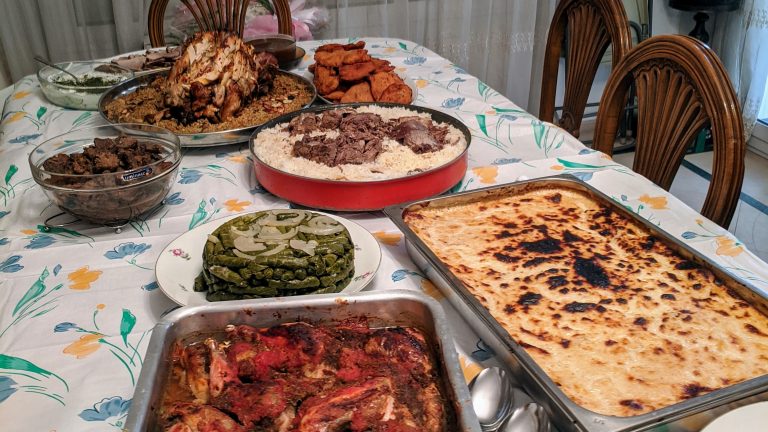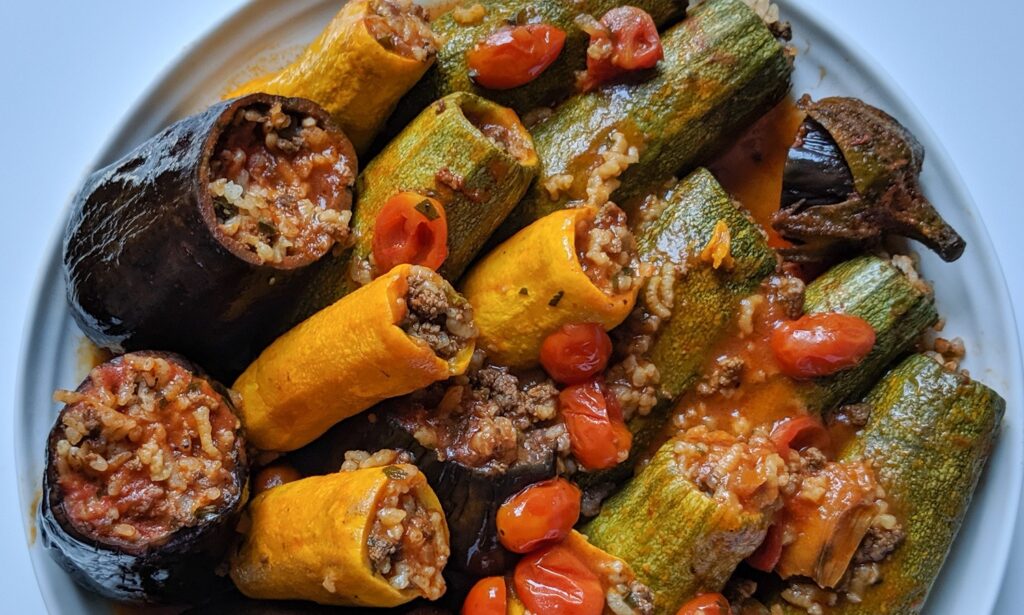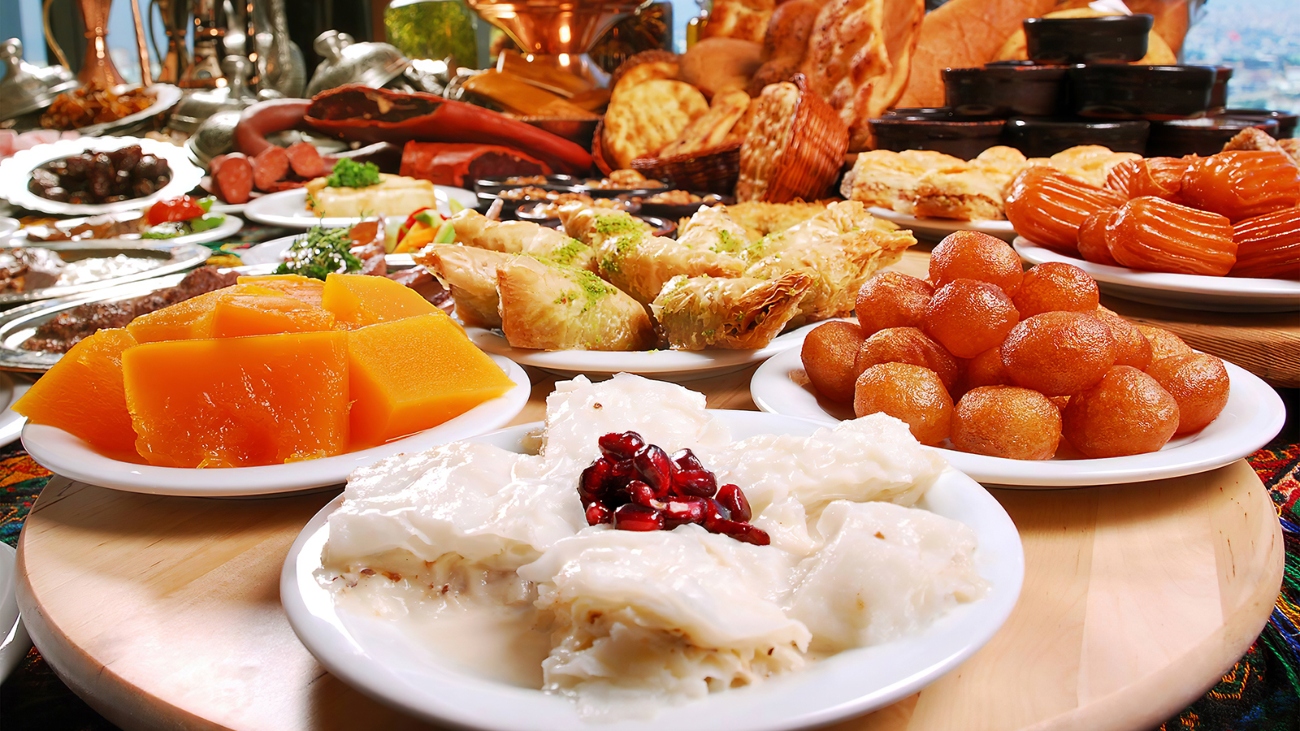From kunafa bel manga, qatayef, and amar el din, to mahshi, macarona bechamel, and fattah, an iftar table at an Egyptian household is usually filled with tasty, mouthwatering dishes from end to end.
However, this also means that many run the risk of picking up unhealthy eating habits throughout the month. Although Ramadan is the month of fasting, some Egyptians end up consuming excessive amounts of food and drink during iftar because of family get-togethers and the celebratory spirit that accompanies the arrival of the holy month.

Egyptian Streets sat down with Nancy Ashmawy, holistic nutritionist, about common unhealthy habits that Egyptians partake in during Ramadan, and ways to reduce them.
What are some unhealthy habits that Egyptians follow in the month of Ramadan?
We all feel nostalgic about things we only get to have once a year and it’s okay to indulge in them moderately throughout Ramadan. However, unfortunately we can sometimes overdo it. One thing most people don’t pay too much attention to are drinks. Traditional recipes of karkade, amar el din, and erk sous are laden with sugar, not only are they contributing to a high caloric intake but also cause a spike in blood sugar taken on an empty stomach. Just making a few tweaks to those essentially nutritious drinks can make them way healthier, not as sweet, but still delicious and hydrating.
Start by halving the amount of sugar in any given recipe and replace it with honey instead. For example, a traditional karkade recipe calls for 1 cup of hibiscus leaves, 4 cups of water, and 1.5 cups of sugar. Instead of 1.5 cups of sugar, use 3/4 cup of honey. It will take your taste buds to adjust at first, then this recipe will become your preferred one. Over indulging in oriental dessert is another problem.
There’s a common belief that, to stay healthy, one has to shy away from delicious sweet and savory dishes that are usually prepared in iftar meals. Is that true?
Well, yes and no. If you have control on how the food is made, you can make minor adjustments to make them healthier and still as delicious. So instead of deep frying sambousak, because who can resist it, you can brush it with some olive oil and oven bake it instead. Try filling your mahshi with more vegetables and maybe replacing the rice with quinoa or brown rice (just add it half cooked because it takes longer). Use healthier oils and butters, like olive, coconut, ghee or butter, instead of highly processed ones, like corn or sunflower oil.
Similar to the drinks example above, for oriental desserts, you can substitute half the sugar amount with honey. If you’re not an expert in making oriental desserts, I’d be surprised if you are, you can make this very simple recipe to satisfy that sweet tooth. Just mix some kunafa with coconut oil or ghee for a more traditional taste, and cook it in the oven until golden, top it with some honey and greek yogurt or a dollop of unsweetened whipping cream. Obviously, if you’re not having those foods often, 1-2 times a week and/or not in large quantities, then you shouldn’t worry about it.

Do you think the main issue is our choice of dishes and cooking methods, or is it more of the way we consume food, or a mix of both?
Definitely both. However, mastering a better cooking method will make it less of an issue. Avoid deep frying foods, and instead pan fry and oven bake, use better ingredients like oils mentioned previously, and replace refined foods such as white rice and bread, with their unprocessed counterparts like whole wheat bread, brown rice, and other nutritious vegetables, to your plate. These are other ways to fix the problem.
How do you think we can reduce or change unhealthy habits?
I think it all starts with our mindset. Once we stop thinking that all healthy food is boring, we can truly start exploring the possibilities, enjoying the food, and reaping the benefits. Healthy food isn’t only steamed, grilled or boiled, which are not bad in themselves if utilized correctly. Try seasoning your food with new spices, adding colorful vegetables, and making healthy salad dressings. Explore different cuisines, Indian, Chinese, Mexican, etc. Look up healthy recipes for chickpea curry or a bean chili.
Can you give us a few tips on what to do and what not to do during iftar, sohour, and our time fasting?
Start by adding and not taking away from your diet. So for example, you can start by adding more water while breaking your fast, that will lead to less sugary drinks. Begin your meal with a salad and a vegetable-based soup to get the nourishment you need. This will probably make you less likely to binge on other items. Before having dessert, have a piece of fruit, this might satisfy your sweet tooth to either help you avoid dessert altogether or at least make your portion smaller.







Comments (2)
[…] How to Stick to a Healthy Iftar Table in an Egyptian Home JICA Launches New Initiatives for Egyptian Startups With Funding and Mentorship […]
[…] كيف تتمسك بطاولة إفطار صحية في منزل مصري جايكا تطلق مبادرات جديدة للشركات المصرية الناشئة بتمويل وإرشاد […]